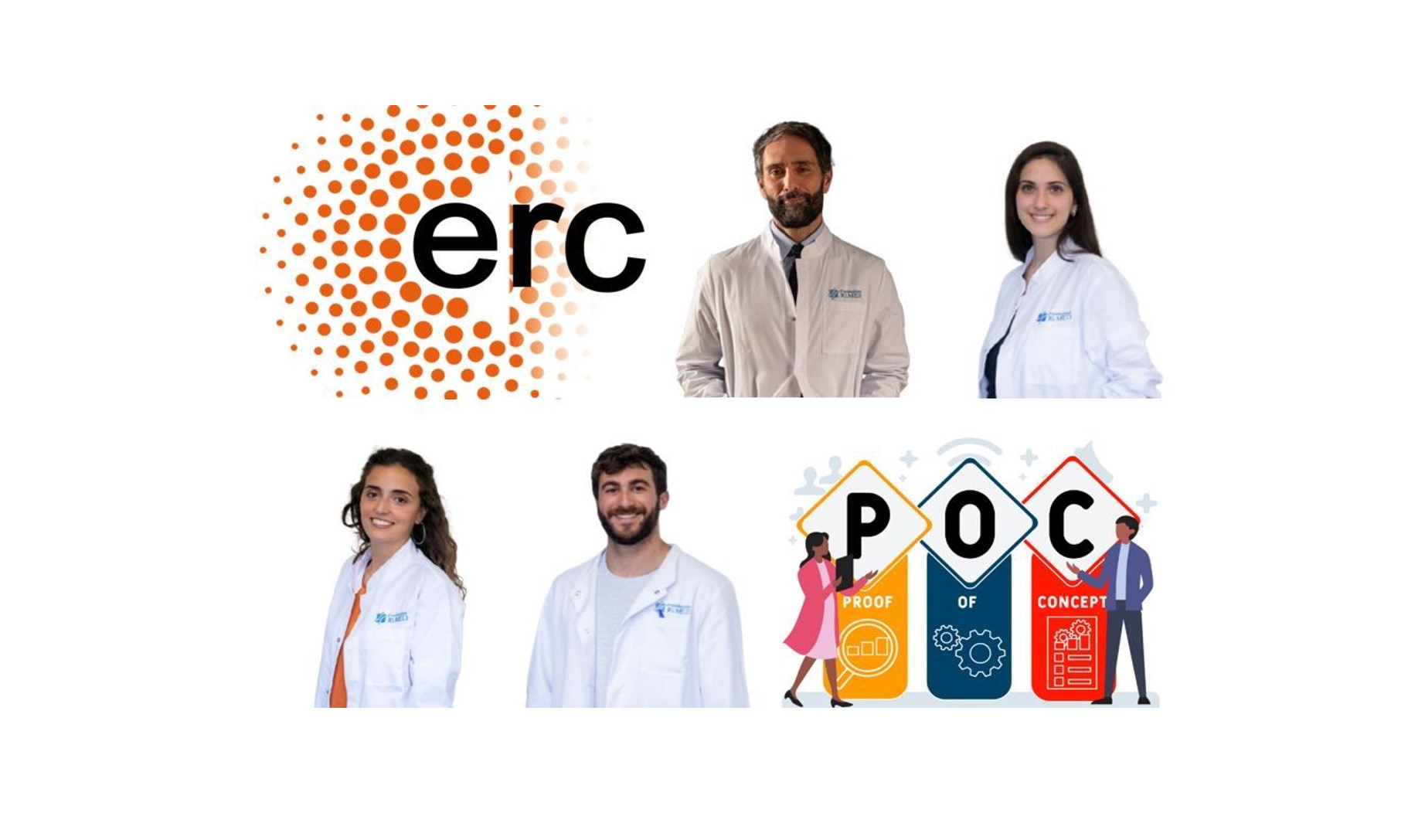The Ri.MED Foundation’s Cardiovascular Tissue Engineering Lab, led by D’Amore, to develop a revolutionary technology to improve the biocompatibility of vascular devices used by over 10 million patients every year.
Palermo, July 16, 2025 – A proprietary technology, already patented in the United States and currently under evaluation in Europe, based on an innovative polymer processing technique that allows precise control over surface morphology — this is the foundation of HemoStratum, a project by Antonio D’Amore, Group Leader of Tissue Engineering at the Ri.MED Foundation, recently selected for funding by the European Research Council (ERC) under its prestigious Proof of Concept (PoC) program.
The PoC grant is a highly competitive initiative, open only to researchers who have previously received ERC funding, and supports scientific discoveries with high potential for social and economic impact — frontier projects with the power to transform their respective markets.
In this case, the focus is on medical devices that come into direct and continuous contact with a patient’s blood once implanted — such as artificial hearts, oxygenators, heart and lung valves, vascular stents, bypass grafts, and more. Biocompatibility remains a major challenge for these devices: up to 70% of patients experience complications, often severe, such as thrombosis or side effects from anticoagulant therapies.
“HemoStratum’s technology selectively promotes the proliferation and alignment of endothelial cells, which are crucial to preventing platelet activation and, consequently, thrombus formation,” explains Prof. Antonio D’Amore.
“We aim to develop a bioengineered membrane using a combined process of electrodeposition and photolithography to create structured surfaces that guide the physiological growth of endothelial cells — a truly smart interface between material and the human body.”
In 2020, D’Amore was awarded an ERC Consolidator Grant worth €2 million for Biomitral, a project focused on the development of a polymeric mitral valve capable of regenerating the patient’s native tissue. In 2023, he received his first ERC PoC grant for BioChord, dedicated to the production of biomimetic chordae tendineae for the treatment of heart valve diseases.
The 2025 ERC PoC grant for HemoStratum thus marks D’Amore’s third consecutive success with the ERC, underscoring the unique trajectory of a researcher affiliated with an Italian institution who has secured funding from both the ERC and the U.S. National Institutes of Health (NIH).
The HemoStratum team includes outstanding researchers from the Ri.MED Foundation:
-
Arianna Adamo, Leading Scientist in Mechanobiology and project coordinator
-
Federica Cosentino, expert in numerical simulations
-
Pietro Terranova, head of bio-fabrication
All are part of the team led by D’Amore.
“This further recognition is a great source of pride for the Ri.MED Foundation and a clear example of the value of a model that thrives on the strategic contribution of our partners,” said Paolo Aquilanti, President of the Ri.MED Foundation.
“The University of Pittsburgh, offering top-tier scientific training; IRCCS ISMETT, providing the vital clinical connection; and the University of Palermo, a valuable ally in educating future researchers. Antonio D’Amore and his exceptional team perfectly embody the potential of research when it is supported with vision and continuity.”
With HemoStratum, Antonio D’Amore’s team is paving the way for a new generation of cardiovascular devices: safer, longer-lasting, and fully integrated with the human body.

